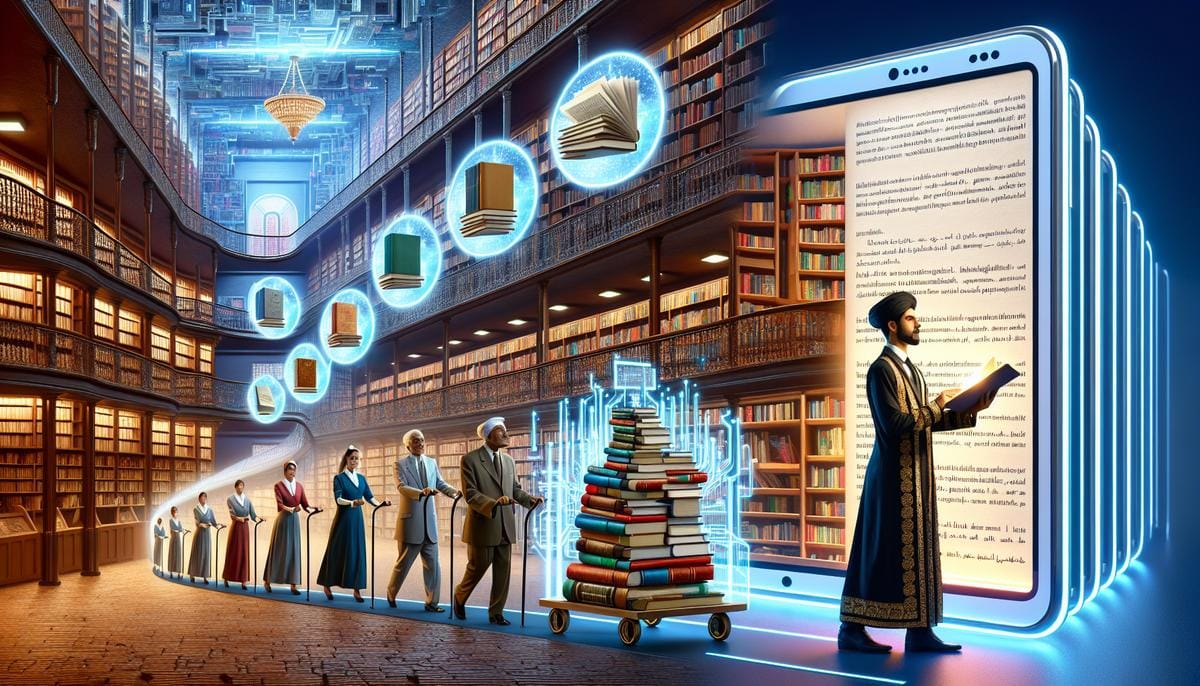The Future of Books: E-Readers and Digital Libraries

The Evolution of Books
The way we consume books has changed dramatically over the past few decades. From the invention of the printing press to the rise of e-readers and digital libraries, the way we access information and entertainment through books has continually evolved. Today, technology has made it possible for us to carry entire libraries in our pockets, making reading more convenient and accessible than ever before.
The Rise of E-Readers
E-readers have become increasingly popular in recent years, thanks to their portability, convenience, and cost-effectiveness. These devices allow readers to store thousands of books in one place and access them anytime, anywhere. E-readers also offer features such as adjustable font sizes, built-in dictionaries, and backlighting, making reading more comfortable and enjoyable.
One of the most significant advantages of e-readers is their ability to reduce the environmental impact of traditional book publishing. With e-books, there is no need for paper, ink, or transportation, reducing the carbon footprint of the publishing industry. Additionally, e-readers are often more affordable than physical books, making reading more accessible to people from all walks of life.
Digital Libraries
Digital libraries are another aspect of the future of books. These online platforms allow readers to access a vast collection of books, magazines, and other reading materials from any device with an internet connection. Digital libraries offer the same benefits as e-readers, such as convenience and cost-effectiveness, but they also provide additional advantages.
For example, digital libraries often have advanced search functions, allowing readers to find specific information quickly and easily. They also offer features such as note-taking, highlighting, and bookmarking, making it easier for readers to keep track of their reading progress and take notes for later use.
Another benefit of digital libraries is their ability to offer a wide range of reading materials, including books that may be out of print or hard to find. This makes it possible for readers to access a greater variety of books, including rare and obscure titles.
The Impact of E-Readers and Digital Libraries on Book Publishing
The rise of e-readers and digital libraries has had a significant impact on the book publishing industry. Traditional publishers have had to adapt to the changing landscape by offering e-books and digital editions of their titles. This has led to a shift in the way books are published, marketed, and sold.
E-books have also opened up new opportunities for self-published authors, who can now easily publish and distribute their work without the need for traditional publishing houses. This has led to an increase in the number of books available to readers, as well as a greater diversity of voices and perspectives in the publishing industry.
The Future of Books
As technology continues to advance, the future of books looks bright. E-readers and digital libraries will continue to play a significant role in the way we access and consume books. With the rise of audio books and interactive e-books, the possibilities for the future of reading are endless.
However, the future of books is not without its challenges. For example, the rise of e-books has raised concerns about the sustainability of traditional bookstores and libraries. Additionally, questions about digital rights management and the preservation of digital materials remain unresolved.
Despite these challenges, the future of books remains promising. As long as there are readers who love to read, there will always be a place for books, whether they are physical or digital. The key is to embrace new technology while also preserving the traditions and joys of reading that have been passed down through generations.
Conclusion
The future of books is an exciting and ever-changing landscape. With the rise of e-readers and digital libraries, readers have more options than ever before when it comes to accessing and enjoying books. While there are challenges to be addressed, the potential for innovation and growth in the publishing industry is limitless. As we look towards the future, one thing is for sure: the love of reading will continue to endure, no matter what form books take.


